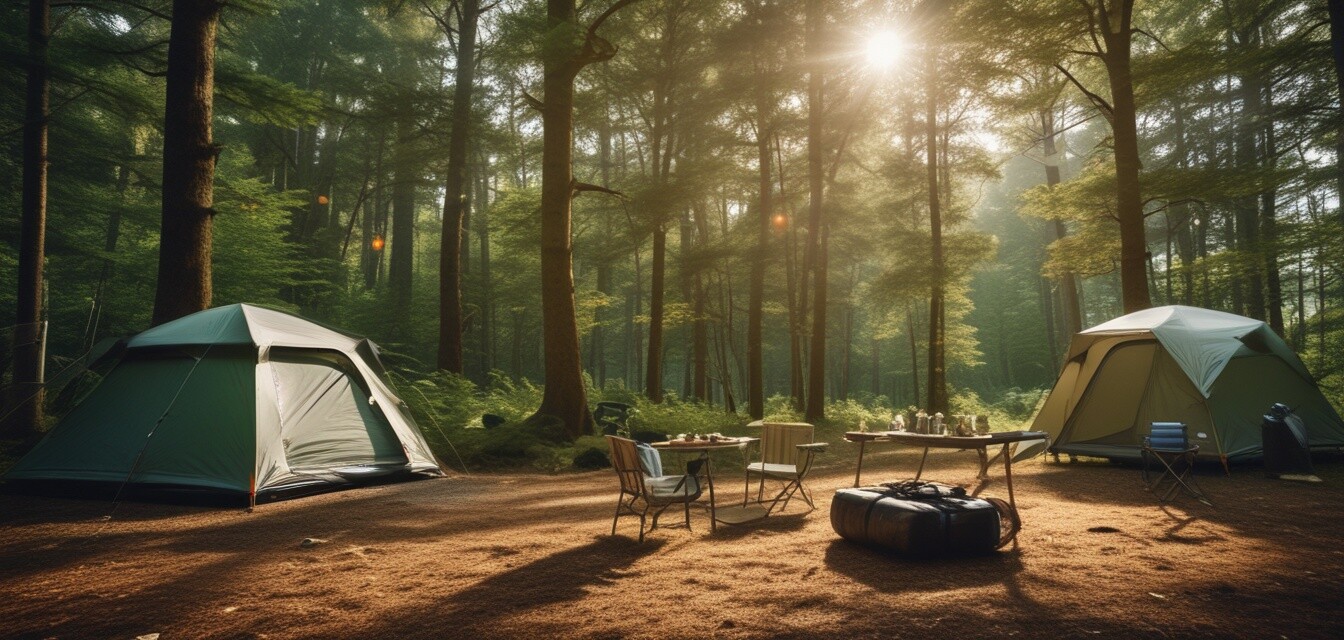
Camping Essentials for Eco-Conscious Campers
Key Takeaways
- Eco-friendly gear helps reduce your environmental impact while camping.
- Choosing sustainable products supports eco-friendly brands.
- Awareness of your camping footprint improves your outdoor experience.
- Essential eco-friendly camping gear includes tents, cookware, and apparel.
Camping is a wonderful way to connect with nature, unwind from daily stresses, and explore the great outdoors. For eco-conscious campers, it's essential to choose camping gear that aligns with environmental sustainability. This guide will help beginners select eco-friendly camping essentials designed to minimize our impact on the environment while enjoying nature to the fullest.
Why eco-conscious camping matters
As more people seek the outdoors, understanding the importance of eco-friendly practices becomes crucial. Each decision we make—from the gear we carry to the waste we produce—affects the ecosystems we enjoy. Eco-conscious camping promotes the protection of our natural surroundings. By choosing sustainable gear, we not only preserve the environment but also encourage a movement to keep outdoor spaces beautiful.
Essential eco-friendly camping gear
Here’s a list of essential items that every eco-conscious camper should consider packing:
- Sustainable tents: Look for tents made from recycled materials.
- Biodegradable toiletries: Choose products that won’t harm water sources.
- Reusable cookware: Opt for durable, non-toxic cooking gear.
- Solar-powered lights: Use renewable energy to illuminate your campsite.
- Eco-friendly sleeping gear: Invest in sleeping bags and pads made from sustainable resources.
Comparison: Eco-friendly vs. Conventional gear
| Feature | Eco-Friendly Gear | Conventional Gear |
|---|---|---|
| Materials | Recycled or sustainable materials | Often made from synthetic, non-biodegradable materials |
| Packaging | Minimal or biodegradable packaging | Plastic-heavy or non-recyclable packaging |
| Energy use | Solar-powered options | Battery-operated or non-renewable energy |
| Durability | Built to last with eco standards | May wear out quickly, creating waste |
Tips for choosing eco-friendly camping gear
Beginner's tips
- Research brands that focus on sustainability.
- Read reviews on the environmental impact of materials used.
- Choose products with certifications like Fair Trade or Eco-Label.
- Invest in high-quality items that last longer to reduce waste.
Reducing your camping footprint
In addition to choosing the right gear, there are other ways to minimize your camping footprint:
- Leave no trace: Practice the Leave No Trace principles to protect natural areas.
- Plan meals: Bring food that generates less waste, such as bulk items and reusable containers.
- Carpool or use public transport: Reduce your carbon footprint when getting to your campsite.
- Engage in conservation: Participate in or donate to local conservation efforts while camping.
Conclusion
As outdoor enthusiasts, we hold the responsibility to protect our environment. By choosing eco-friendly camping gear, we can enjoy our adventures while minimizing our negative impact. Remember to consider sustainability in every aspect of camping—from the equipment we use to the practices we follow. For more tips on camping gear, explore our Camping Buying Guides for helpful advice. The great outdoors is ours to cherish, so let’s take care of it!
Pros
- Supports sustainable living practices.
- Helps preserve natural ecosystems.
- Promotes awareness of environmental issues.
- Can enhance your outdoor experience through mindful practices.
Cons
- May require higher initial investment.
- Limited options in some categories.
- Availability could be an issue in some regions.